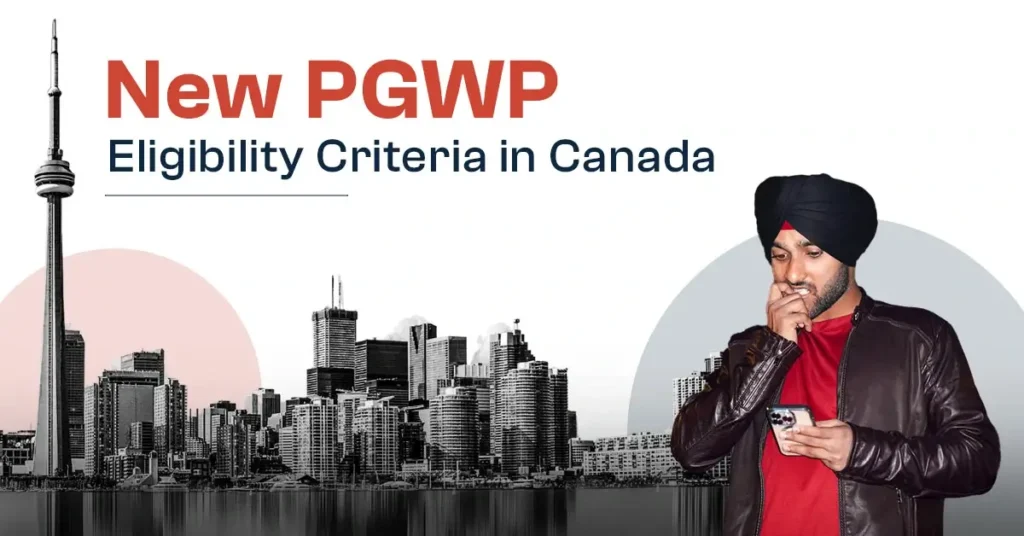
Canada’s Post-Graduation Work Permit (PGWP) program has recently undergone significant updates to better align with the country’s labor market needs. These changes are designed to help international graduates gain the skills necessary to thrive in Canada’s workforce. Notably, Canada has stopped issuing PGWPs for certain non-STEM programs, such as those in arts and commerce, focusing instead on fields with long-term labor shortages like healthcare, engineering, and technology. Read on to discover how these updates may influence your plans to work in Canada after completing your studies.
What Remains Unchanged?
Before looking at the new criteria, it’s important to note that some aspects of PGWP eligibility remain the same:
- Applicants must still meet general and physical location eligibility requirements.
- Programs must be completed at a PGWP-eligible designated learning institution.
- Current eligibility criteria apply to applications submitted before November 1, 2024.
- Graduates from PGWP-eligible flight schools are exempt from the new requirements.
New Eligibility Requirements
The new requirements, which take effect on November 1, 2024, introduce language proficiency standards and field of study restrictions for certain programs. Let’s break down these changes based on your study permit application date and program type.
For Study Permits Applied Before November 1, 2024
If you applied for your study permit before the cutoff date but are applying for a PGWP on or after November 1, 2024, you’ll need to meet new language requirements:
University graduates (bachelor’s, master’s, or doctoral degrees):
- Minimum Canadian Language Benchmark (CLB) 7 in English or Niveaux de compétence linguistique canadiens (NCLC) 7 in French across all four language skills.
Other university program graduates:
- Same language requirements as above.
College program graduates or other programs:
- Minimum CLB 5 in English or NCLC 5 in French across all four language skills.
For Study Permits Applied On or After November 1, 2024
If you apply for your study permit on or after November 1, 2024, you’ll face additional requirements:
University graduates (bachelor’s, master’s, or doctoral degrees):
- Language requirement: CLB 7 or NCLC 7 minimum.
- No restrictions on the field of study.
Other university program graduates:
- Language requirement: CLB 7 or NCLC 7 minimum.
- Must graduate in an eligible field of study.
College program graduates or other programs:
- Language requirement: CLB 5 or NCLC 5 minimum.
- Must graduate in an eligible field of study.
Language Proficiency Requirements
To prove your language skills, you’ll need to take an approved language test. The results must be less than two years old when you apply for the PGWP. Accepted tests include:
- For English: CELPIP-General, IELTS General Training, or PTE Core
- For French: TEF Canada or TCF Canada
Your test results must demonstrate proficiency in reading, writing, listening, and speaking at the required CLB or NCLC level for your program type.
Eligible Fields of Study
For programs with field of study requirements, graduates must complete a program linked to occupations facing long-term shortages in Canada. The eligible fields fall into five broad categories:
- Agriculture and agri-food
- Healthcare
- Science, Technology, Engineering, and Mathematics (STEM)
- Trades
- Transport
The modifications reflect Canada’s dedication to ensuring that they attract skilled global graduates who can be of use in vital sectors of Canada’s economy. Since they introduce language proficiency levels and focus on high-demand areas the new PGWP eligibility criteria are made with an eye on preparing international students for better performance in the Canadian job market.
Remember these new requirements as you make plans for your studies and after-college job in Canada. It is important to select a program that matches your future career path and comply with the requirements for a valid PGWP application. To avoid any last-minute rush, start preparing for your language proficiency exam early to enable you to meet the required scores in your preferred course.
These changes are meant to boost your chances of getting a job and also to help you succeed in Canada in the long run. You should keep yourself updated on any other policy changes regarding immigration so do not hesitate to get advice from your school or immigration experts if you have any doubts.


